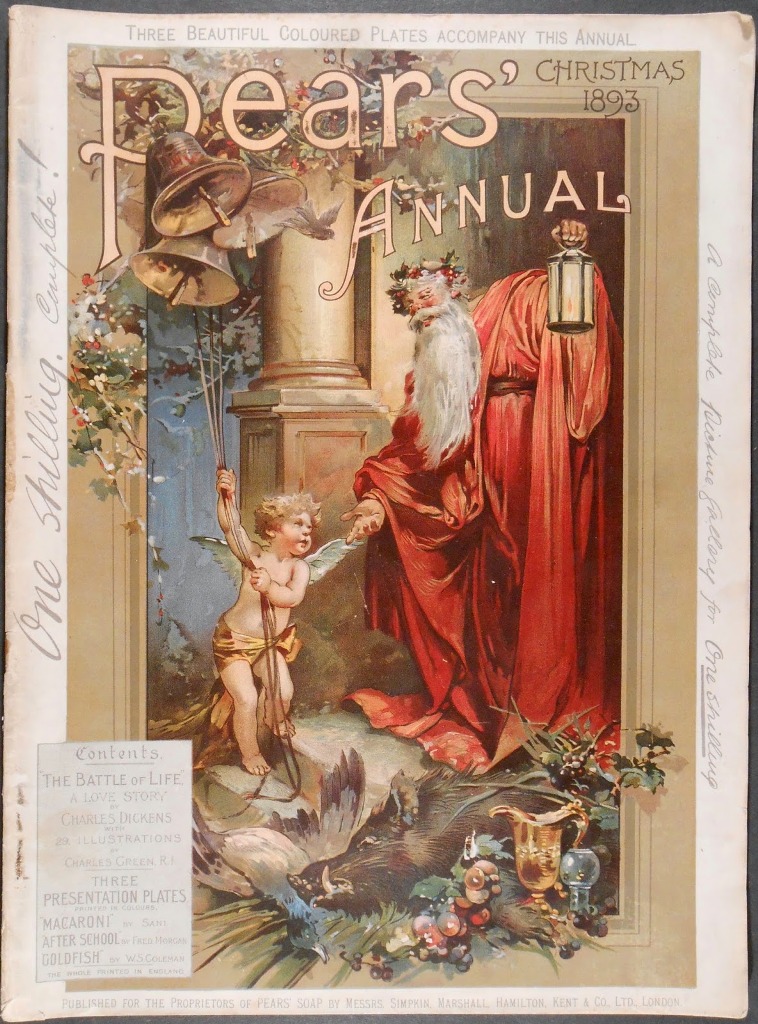From 1891 to 1925 Pears issued a large format Christmas Annual each year. This contained Christmas stories and advertisements and wonderful presentation prints. The annuals themselves are collectable but rare as they were been broken up to yield collectable Pears ads and the cover design for framing. These presentation prints were produced in the early years by the chromolithographic process of paintings bought by Pears' for the purpose. Given away free with the Christmas Annuals, they were intended to be framed and hung on the wall. In some years, four or more different prints were given away with the annual, at other times only two or three. Over the period the annual was issued some 100 prints were available, all by famous artists. Priced at 6p, Barratt was credited with taking art out of the galleries and placing it within reach of those who could never afford such pieces or prints. Nor did the Artists suffer, much, through becoming even more well known - and of course, Pears did well too, becoming the first worldwide known brand of soap.
"Pears' Annual. "—Messrs. E. S. Wigg and Son have sent us a copy of the Christmas number of "Pears' Annual," which is described as a whole picture gallery for one shilling. The letterpress of the publication consists of Dickens's well-known but ever fresh and delightful Christmas carol in prose relating the experiences of the immortal Scrooge. The story is copiously and admirably illustrated by Charles Green, R.I., who in his sketches and more elaborate pictures has fully entered into the spirit of the carol.
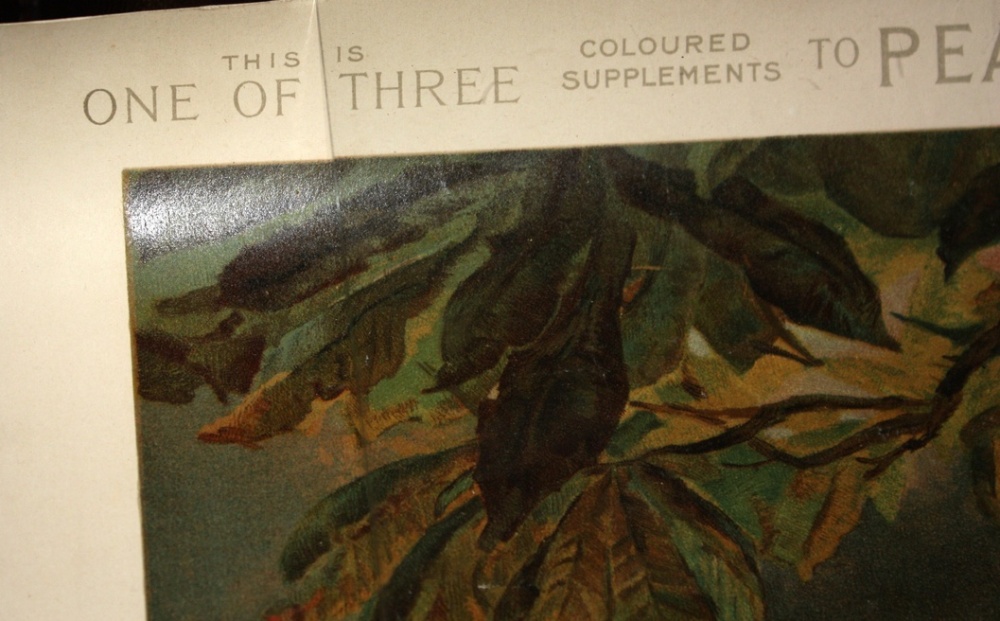
Attached to the number are no less than four separate presentation plates. One a largescale copy of the familiar " You Dirty Boy" picture originally drawn by Focardi, and the others beautifully finished reproductions in colours of paintings by Eugene de Blaas, J. Haynes Williams, and Maynard Brown, entitled respectively "Curiosity," "A Merry Christmas to You All," and " Pluck, or Where There's a Will There's a Way." The original proprietor of Pears' soap has done wonders in the way of raising advertising to the level of a fine art, and the Company which now hold his rights evidently intend to follow in his footsteps and, if possible, to better his example. The publishers of the annual are Messrs. Simpkin, Marshall, Hamilton, Kent, & Co., of London. LITERATURE. (
1892, December 3).
Adelaide Observer (SA : 1843 - 1904), p. 41. Retrieved from
http://nla.gov.au/nla.news-article160800772
The company also put out a Cyclopedia for a shilling, the original Pears' Shilling Cyclopaedia being published in December 1897. Each edition traditionally featured an atlas, a gazetteer, a chronological list of events, a list of prominent people (past and present), a miniature encyclopaedia of general information and around a dozen or more other sections on various subjects such as cinema, classical mythology, current events, wine, astronomy, ideas and beliefs, gardening, medicine, etc. This is still being released annually.
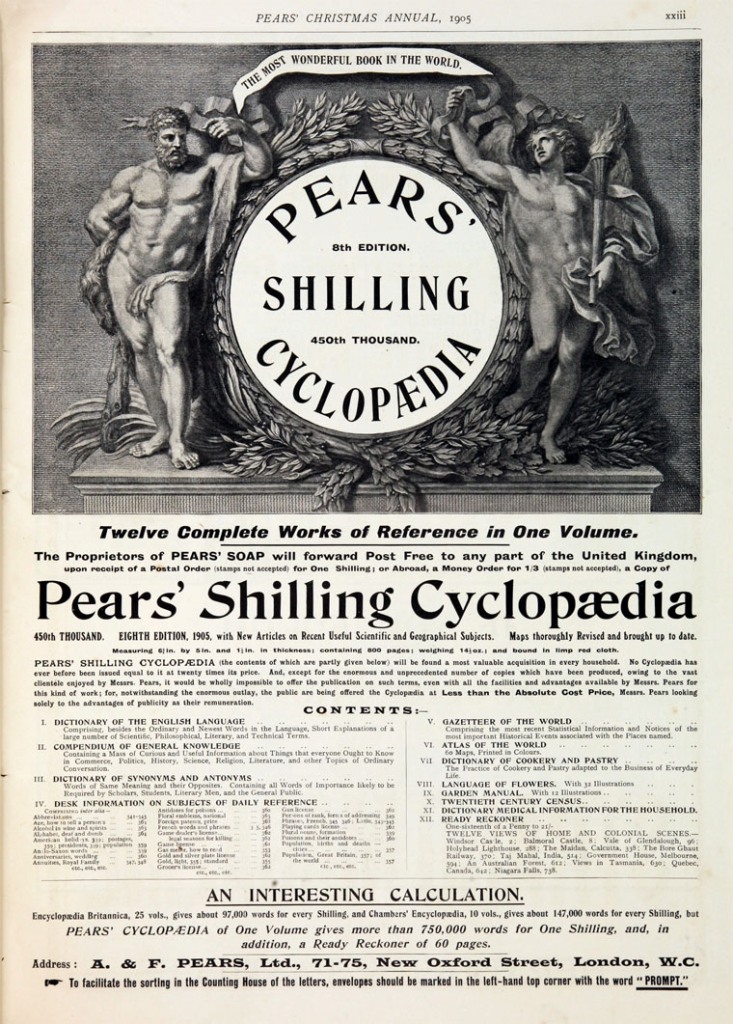
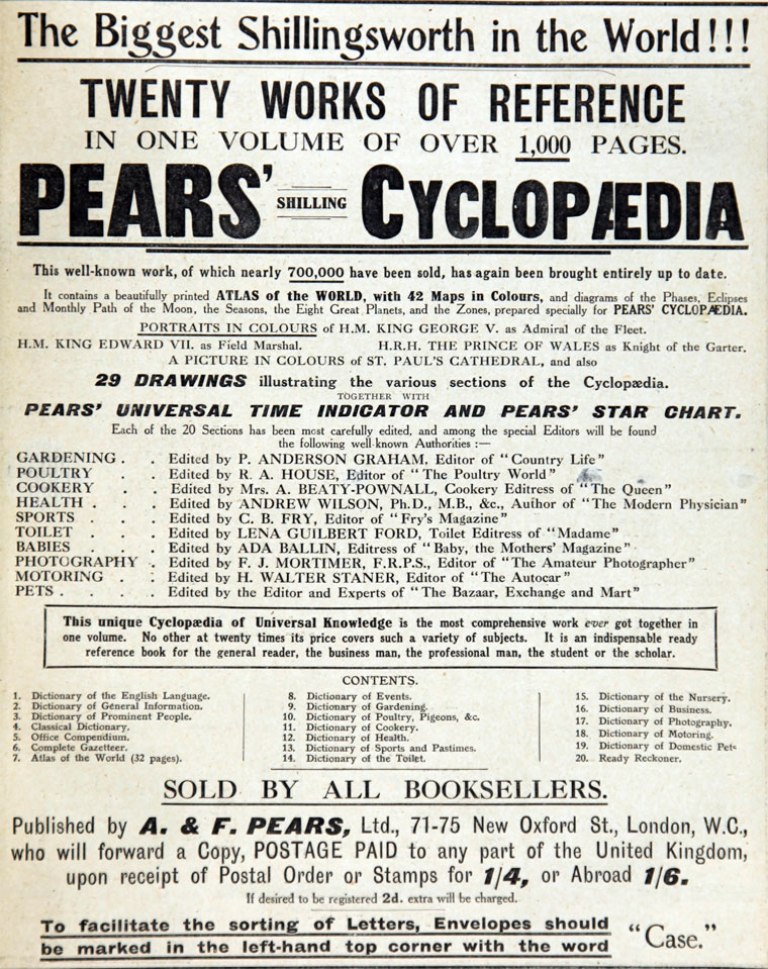
The first famous marketing Pears soap campaign used Giovanni Focardi's most famous statue named
You dirty boy! exhibited at the Exposition Universelle de Parisin 1878. The statue had so much success that Pears purchased the copyright to produce copies as advertisements for their soap products. They were made for shop counter displays in terracotta, plaster and metal, one in zinc or tinplate that is part of the Museum of Applied Arts & Sciences (MAAS) in Sydney was made at Wunderlich in Redfern. This copy was made at least in or after 1908, when Wunderlich became a public company and 'Wunderlich Limited' became used. Stamped on the wash tub:'Pears Soap'. Stamped at rear of the base:'Wunderlich Limited Sydney'. At left of the base: 'The property of A&F Pears Ltd, Sydney & London'. Stamped at right of the base: 'Published May 1878. Copyright England France Germany Italy Denmark United States'. Visit:
https://ma.as/198944
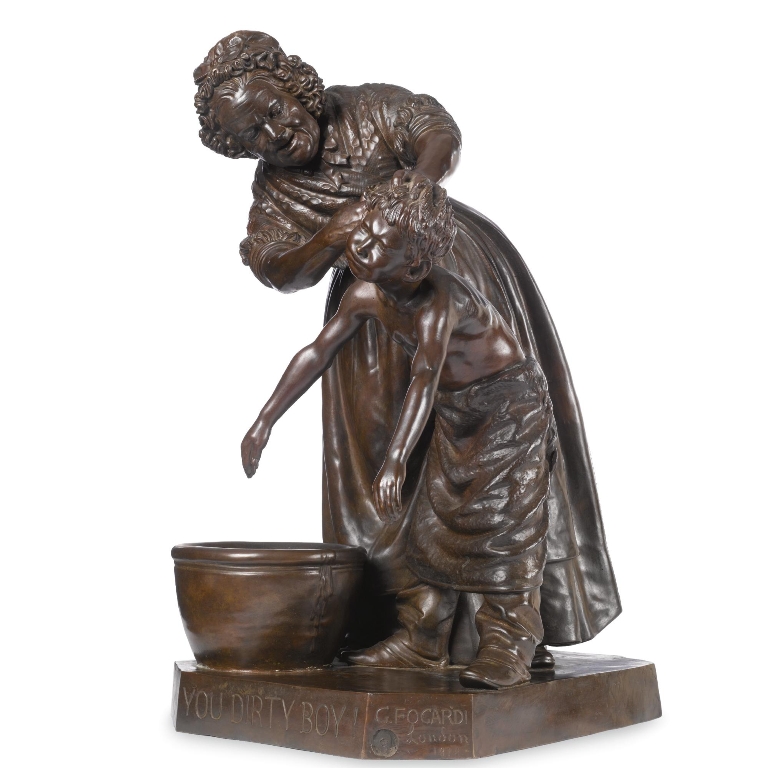
Copies of this statue are still selling in various auctions worldwide for as much as $8000.00 or more Australian dollars (2008). Some of these are placed in local musueums, others go into private collections.
This statue formed part of the 1888 Melbourne Centennial Exhibition for Pears soap:
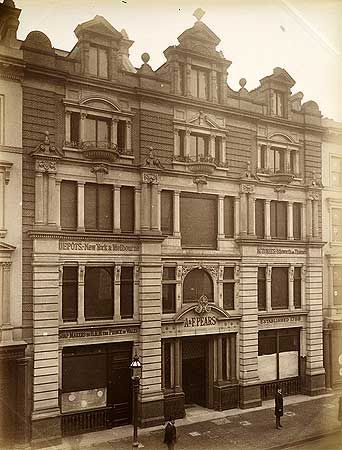 Melbourne Centennial Exhibition.
Melbourne Centennial Exhibition.PEARS' SOAP EXHIBIT.
In the production of such an everyday necessity as soap, one firm that is perhaps best known throughout the civilised world, is that of Messrs. A. and F. Pears, of Now Oxford-street, London. Their establishment, to which, it may he mentioned, visitors from the colonies are always welcome, is a perfect palace in style and architecture. It was finished about 12 months since, and is acknowledged to be one of the finest pieces of work finished in honour of the Jubilee year.
Right: The Pears building
The palace has an imposing frontage, with spacious windows, magnificent doorway, and its court is admitted to be the finest reproduction of a Pompeian court in existence. The electric light is used throughout the entire building, and in the actual working of the establishment electricity is brought into use in (he engine-room. A peculiarity in connection with the offices in that no letters are ever written, everything is done by the aid of the type-writer. Long and short letters alike are dictated to a shorthand-writer and then type-written. The originals of the various works of art reproduced by the firm’s advertisements ornament the walls of the waiting-room. The Australasian depot of Messrs. Pears is at 132 Collins-street West, Melbourne. This is under the management of Messrs. Francis Forrest and Co., and from here Pears stocks are sent all over the colonies. In the Centennial Exhibition, Messrs. Pears exhibit, a neatly-constructed stand, occupies one of the most prominent positions in the building, being in the main hall near the entrance in the Avenue of Nations. The stand contains specimens of transparent soap shown in the different shapes tablets, bails, cakes, and shaving soaps. One of the most celebrated exhibits is the transparent tablet, warranted In containing .. per cent. of pure glycerine The soap is laid out on handsome cut-glass stands, tastefully draped with Liberty silk and crowned with bouquet of white flowers. In the centre of the case a pedestal stands a facsimile pill of the celebrated statuette. 'You Dirty Boy.'' Ten years ago Messrs. pears paid £500 for the original of this, and since then they have expended many thousands of pounds in circulating it as an advertising medium. Close In the case, and standing on an easel, is a copy of Sir John Millais' beautiful picture, 'Bubbles.' For the original of this Messrs. Pears paid £2200. They have since spent over £20,000 in reproducing the first editions, copies of which are given away in the. exhibition. These display great excellence as specimens of colourprinting. It is, no doubt, their lavish method of advertising that has been the means of bringing the firm and its soap so prominently before the public in all parts of the world. Their expenditure in advertising … exceeds £70,000 per annum and this year it will reach the enormous sum of £ 100,000. Some idea of how this is spent and of the clerical aspect of Messrs. Pears' extensive establishment can be gained from the description of a recent visitor who slates that a series of speaking tubes and electric bells at Mr. Barratt's (the manager's) elbow, labelled according to countries and departments, places him within conversing distance of the different departments and divisions. If he wishes to know the latest transactions with a particular customer in Melbourne or Sydney, the quantity of stock iu New York, 'how a certain advertising contract is being fulfilled in California, or how many coolies have been put on duty in Calcutta for diurnal perambulation with pasteboard effigies of 'The Dirty Boy,' he has only got to whistle and ask, and the answer will be immediately forthcoming. Here, Mr. Barratt is in touch with every part of the world; here he retains a sort of bird's-eye view of the whole of the firm's operations — from the busy labours constantly in progress at their huge factories at Isleworth, to the acknowledging of the most recent report from some public analyst who has bought his sample of soap for himself in his own locality, and reported thereon. Advertisements can be shown here which emanated from the firm so far back as the beginning of the present century, including one in the 'lime* of the Waterloo year. Then, if you happen to be of an inquisitive turn of mind, and ask Mr. Barratt whether all the taking ideas which the firm puts forth are like their soap— of their own manufacture— he will, perhaps, send through one of the tubes for the ''notions' which have come by that morning's post to be brought to him. Here, indeed, is a wonderful medley: ideas for puzzles, suggestions for pictures, verses by John Jones, aged 13, a map of the world showing Tears' Soap cleansing every continent, and offers of various kinds from poets, painters, lithographers, newspaper proprietors, ladies of fashion, sculptors, chemists, and what not. lint Mr. Barratt is compelled to confess that out of the hundreds of thousands of suggestions which an industrious public sends to the firm there is rarely one to be found that could be utilised. Some self-confident notion mongers will coolly ask £1000 for the right of using an idea that is only worthy of Bedlam. 1 1 you are fortunate enough to get Mr. Barratt to talk of the firm's operations generally, you will hear much that will astonish you, the extent of business which justifies the expenditure of nearly £100,000 per annum in advertising bring something enormous. Orders are given out regularly for tons of this and millions of that, for when once the firm has decided upon doing a thing they do it thoroughly, and many a printer or lithographer gels an order for many millions of copies of certain pictorial sheet, which will be distributed broadcast simply as a means of advertising the excellence of a cake of soap. Another method of advertising adopted by the firm is by the magic lantern system. On the top floor of the building is the magic lantern room, where from .. to .. every night slides are shown, taken from the various picture advertisements. Those are exhibited to the street in very large size, and some of these are automatic, ' The Dirty Boy'' being actually washed and scrubbed.
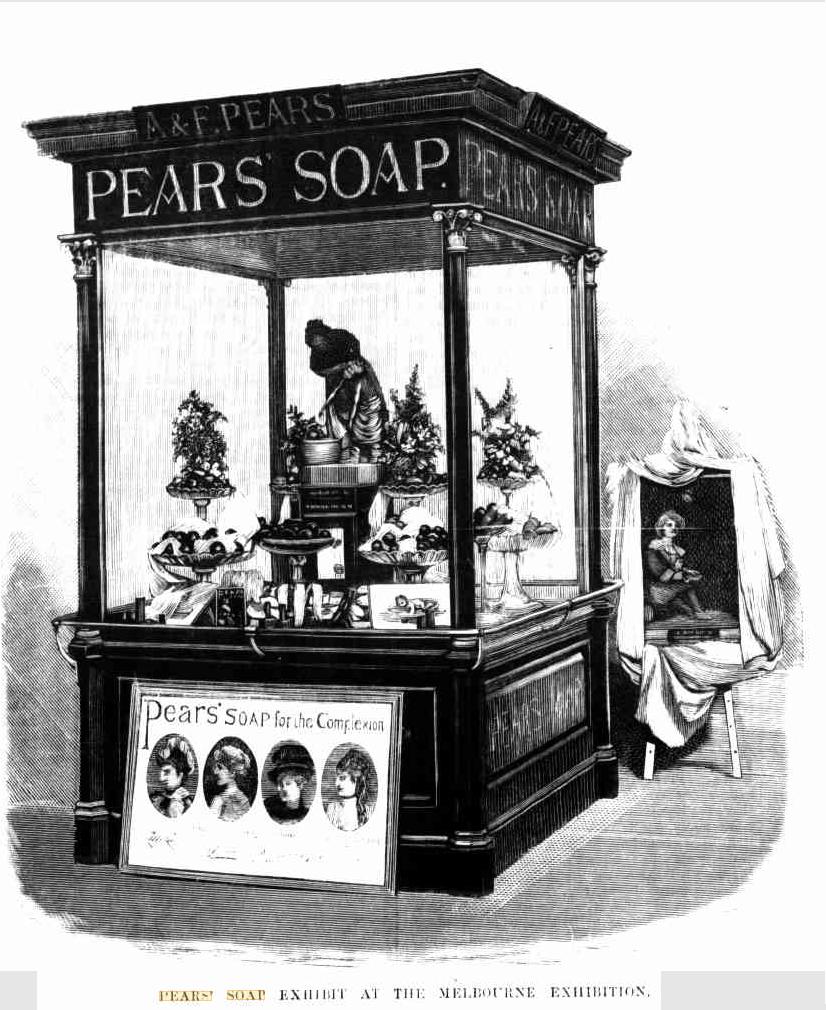
PEARS' SOAP EXHIBIT AT THE MELBOURNE EXHIBITION.
This article is an interview with Mr. Barratt himself:
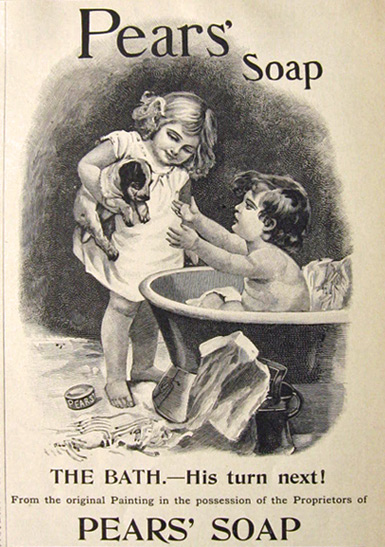 THE GREAT ADVERTISERS OF THE WORLD.
THE GREAT ADVERTISERS OF THE WORLD.(Pall Mall Gazette.)
Pears's Soap.
Adelina Patti.-"I have found Pears's soap matchless for the hands and complexion."
Lillie Langtry.-" I prefer Pears's soap to any other."
So say Mdme. Patti and Mrs. Langtry, and other ladies and gentlemen known to fame, in all the advertising pages of all the papers in the English-speaking world. We have thought, then, that some account of the rise and method of a firm whose names are as familiar in our mouths as household words, who spend from £30,000 to £40,000 a year in advertising, may not be without interest to our readers. To obtain this information one of our representatives called the other day upon Mr. Barratt, one of the partners in the great business house of Messrs. A. and F. Pears, and here is the result :
I found Mr. Barratt (he says) hard at work among his papers in a pleasant room in Great Russell-street, very busy, but still quite ready for an hour's talk about his soap and his advertisements. Piled away in corners were the pictures illustrating the virtues of the famous soap-Venuses, houris fresh from the bath, innocent babes, comely nurses, stout matrons, and travesties of well-known pictures. Just above Mr. Barratt's desk is the original of Mr. Marks's famous drawing of the two monks washing and shaving, and just below it the travesty which appeared in Punch, with Mr. Gladstone and Mr. Chamberlain as the two monks. "Here, you see, are electros of the different pictures and designs that we use," said Mr. Barratt, pulling out drawer after drawer full of blocks. "Here are our scrap-books, where we keep every remark and comment that is made on our business. Is it not odd how often the 'Dirty Boy ' has been used for political purposes ?"
ALWAYS THINKING.
"I am always thinking of some new scheme for catching the public eye, and hitting the public taste. I am fond of horses, dogs, shooting and fishing; but my heart is here," said Mr. Barratt, taking up a tablet of soap, and eyeing it critically. 'Sometimes I am in America, establishing agencies, receiving my travellers there we have three who are always on the road in the States, and one in Canada. I went some time ago to Australia and New Zealand on the same errand, arranging details, examining likely districts, investigating, and pushing 'the only genuine article ' wherever I see an opening. We are about to establish a house in Sydney and another in Bombay. Our travellers have visited India, China, Japan, and South America. Do you remember how Miss Clack, in one of Wilkie Collins's novels, used to distribute tracts in every possible quarter from the folds of the bedlinen to the leaves of a novel, at every possible hour, on every possible subject, from. 'the word to you on your can-ribbons ' for the pretty housemaid, upwards ? I am a business personification of Miss Clack, always at work in the good cause. All day long I am dictating to my three shorthand clerks; without shorthand I could never get through my business."
FROM SMALL BEGINNINGS.
"Our business is a very old one, and looking back can count no less than four generations of Pears. Even in 1810 you see," said Mr. Barratt, reaching down a picture-frame from, the wall, "they went in for the artistic and novel in advertising. Here is a capital imitation of a £10 note, which proposes to 'pay to delicate beauty or order, &c.,' and here again is a show card of 1807. Look at the motto, 'Truth will always be transcendent. Pears's incomparable transparent soap, recommended to all who desire to improve the native hue and texture of their complexion.' Through successive generations the business has grown, and now it is an immense affair. Over a thousand people depend for their daily bread-and-butter on our soap. It has been stated, by the way, that Sir Erasmus Wilson is a member of our firm; but the only partners are Mr. Andrew Pears, a Pears of the fourth generation, and myself. He is responsible for manufacture and I for administration."
A GOOD PIECE OF SOAP.
“I should like to ask you, first, about your soap, and then about your advertisements. Now, how do you tell a good piece of soap?" I asked Mr. Barratt, wishing to acquire information on my own account. "Well, that is a most difficult thing for you to do. You must analyse or trust to the maker. There are soaps and soaps. Some people like bulk for their money. Bulk, and scent, and colours, and all for next to nothing. It can't be done. The secret of our success is a good article. We never allow it to deteriorate, never adulterate it. Some tradesmen fancy that when they have spent huge sums in advertising their wares, and have been successful in recouping them-selves for their outlay, the next thing to do is to increase their profits by passing off an inferior article. That we never do. It has taken all these years to make us. The policy of adulteration is suicidal You say our soap is dear. If you want a good thing you must pay for it. Do you think that Sir Erasmus Wilson would have helped us to fame and fortune, as he has done by his recommendation by those golden words of his which have been scattered by millions all over the civilised world? I daresay some untutored African savage with a desire for learning has spelt out his letters from one of those leaflets. Then look at this list of well-known men who have given us certificates, at our request certainly, but men like these would not prostitute their names by false testimony."
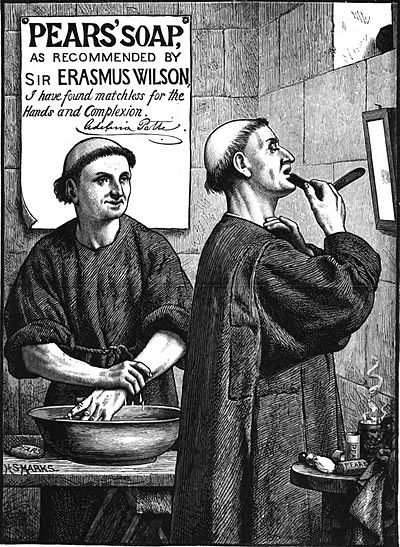 SOAPS AND SKINS.
SOAPS AND SKINS."As long as they get these clean and keep them so, do you really think that people think so much about their skins from a soap and sanitary point of view?"
"Of course they do. Look at my face and yours. Mine is without a wrinkle, yours is scored with them. Have you used our soap ? No. Then the reason is not far to seek." Mr. Barratt became quite excited during this discussion, being aghast at such "'heterodoxy. "dangerous soaps contain arsenic, mercury, and all sorts of noxious medicaments. Also how do you think the colours are produced? If you buy a cheap toilet soap the bulk is due, perhaps, to the clays and earths to reduce the cost; partly to water, of which some toilet soaps hold as much as 60 per cent, whereas pure soap should only have 29 per cent. When these soaps are purified, as it is called, more alum with scent and coloring matter is added. The colour is perhaps the worst of many bad features; green is generally due to arsenic, or sesquioxide of chromium; red to vermillion; blue, to ultramarine. Pure soap is made from fats and oils of various kinds, with alkaline. If it is properly made it will contain the proper quantities' of each. Too much soda makes the skin rough. Too much oil spoils the cleansing powers of the soap. If it contains an undue percentage of water you pay for water and not for soap. We refine and doubly refine our soap, taking out any excess of alkaline matter, and giving it such transparency, while the amber colour is the result of age. Listen to what Sir Erasmus Wilson says :-' I once knew a beautiful girl, with a nice complexion, who had never washed her face with soap all her life through her means of polishing were, a smear of grease, e.g., cold cream, then a wipe, and then a lick with rosewater. Of course one did not care to look too closely after such an avowal ; and one has met in the world with persons so unfortunate as to be unable to bear soap to their skin at all. Let us pity both, for soap is the food of the skin. Soap is to the skin what wine is to the stomach, a generous stimulant, and a solvent to boot of the surface which holds the dirt.' Now we will change the subject, if you like."
THE BABES IN THE " TIMES."
"One moment more. Do you contend," said I, " that your soap is so very beneficial to the skin of a baby ? " Why, certainly," said Mr. Barratt, a proud smile curling round his lips. "Of course there are mothers and mothers. Some use plain white soap, thinking that it is more wholesome, and then they wonder that the baby cries, and that its skin is red and inflamed. They little know the ingredients of the gritty imposition which they have been applying. So that the baby sometimes gets both smacks and grits, which is not at all fair. Now when our own soap is used the subjects actually crow with pleasure." I did not ask whether my vis-à-vis spoke from personal experience, nor did I pursue the subject further, even declining the offer of a slab, having (as yet) no personal interest in such matters. "Now," said Mr. Barratt, " look at this little pack-age. We send one gratuitously to each of the babies whose birth is announced in the columns of the Times. You see it is a neat little box, containing one of our shilling cakes of soap and a number of our pictorial leaflets, neatly packed, and the whole sent by post. You may readily estimate the number that go out during a year." We give a representation of the ingenious contrivances by which such enterprising trades-men push their wares.
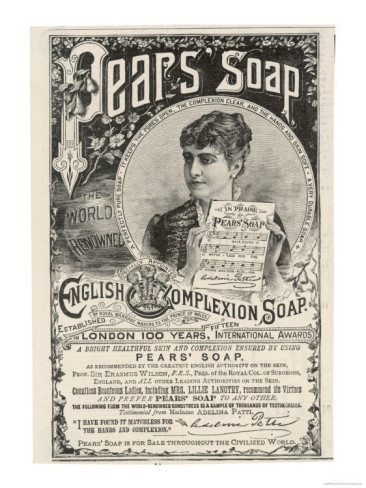 THE FORTY VIRTUOUS MATRONS OF
THE FORTY VIRTUOUS MATRONS OFS-J-'s W.-D.
Travellers in omnibuses may have noticed a representation of a very young lady (presumably) playing in a bath with a nigger girl, the intention of the artist being to depict the magic powers of soap when applied to an ebony surface. The soap is evidently about to effect the wished-for metamorphoses. Once on a time, it happened that three staid matrons hailed a passing 'bus. They got in, and took their places. A few minutes elapsed, when one of the party gave signs of perturbation. "Good heavens, Mrs. . do you see those -those-two girls-bathing in that most indelicate manner. One without so much on her as would cover a sixpence, I do declare-and the other-well, there!-the less said about it the better. One of 'em is black, certainly; and that's something. But what's the world coming to, when one can't get into a 'bus without having the blushes called to our cheeks ! I call it positively indecent. It's bad enough to have to sit next to Aspasias, but these hussies !" Here a benevolent old gentleman, with a twinkle in his eye, murmured something about "Poynter and Leighton, and art," but was cowed by the fierce glance of these three virtuous matrons, so shocked at the picture of Messrs. Pears. The 'bus dropped them at their various destinations. But the news spread among the other matrons of St. J-'s W-. The buses on the line did a great stroke of business for a while, and a pretty commotion there was. Some only laughed; these were the younger members of the community. Others shook their heads gravely, and muttered gloomy sentences about "immorality," &c. One morning, about two months after the eventful journey of the three matrons, a bulky envelope was found among Messrs. Pears's correspondence. It was a round robin signed by forty married ladies, austere creatures, requesting the suppression of the offending picture. N.B.-This is a true story.
ADVERTISEMENTS AND THEIR COST.
"From £30,000 to £40,000 we spend every year in advertising, more than any other firm in the world, I fancy. Now, we paid £1000 for the back page of the official 'Guide to the Health Exhibition,' and the daily programme. A good round sum that. Last Christmas we inserted in the magazines fifteen tons-yes, tons-of our bills. Our aim is to make the advertisement telling, artistic, picturesque, attractive, pretty, amusing, a combination which is not easy to attain; and yet, with-out bragging, we may claim some of these attributes. How much thought all these matters require for their development into profitable advertisements I need not say. We employ artists, poets, essayists. Our printing bill would startle you. I consider the most enterprising offer we ever made was for the back of the census papers, an offer which was discussed, I believe, by the Cabinet, but which, I am sorry to say, was not entertained. We should have advertised our wares on the back of-say, 35,000,000 papers. Heavens! what an advertisement ! It would have cost us £100,000, I daresay, cash down, but it would have been cheap at the money.
Every year we print millions upon millions of bills and cards, which are distributed, broadcast indeed, but with judgment. I am rather down on magazine advertising just now. We agree, say, to insert one of our bills in a certain position in a certain magazine When the time comes to go to press they send up for them. They represent the circulation to me as, say, 20,000 copies, and of course ask for 20,000 bills. Now I am sure that the figures are often misrepresented. They ask for 50,000, and use 15,000. We lose on the transaction by the diminished circulation and the cost of our 5000 bills, which go into the dust-hole ; but we have offered £200 reward for information which will lead to conviction of the offender, be he who he may."
THE CIRCULATION OF ADVERTISEMENTS.
" The circulation of an advertisement is the most difficult thing in the world to pass an opinion upon. I may say that it is impossible. The respective values of news-papers and magazines as media one cannot gauge. Endeavours have been made by the coupon system to obtain some comparative gauge, but anything like reliable or approximate figures are impassible. One must use one's own judgment, experience, and business shrewdness We should not advertise in a paper which circulated at the East-end, of course. Now 800 omnibuses are at this moment carrying our Advertisements, of which 100 are outside boards. An omnibus is much better than a railway carriage. At railway stations, and in railway carriages, people are presumably in a hurry. You might give away a balloon with every package of soap, or a fan. There are endless methods. The bills-of-fare at the hotels and restaurants, the backs of tickets of all sorts, opera, theatre, concert. But one casts one's bread upon the waters."
THE STORY OF " THE DIRTY BOY”.
'"The Dirty Boy” was the greatest coup we ever made,’ said Mr. Barrett, who then told me the history of the statue " Focardi was a poor Italian sculptor. He happened one day to be in Preston, a grimy, smoky, Lancashire town. He was lodging in an obscure quarter of the town casting about for work. One morning he rang for his breakfast-once, twice. But no answer came. Again he pulled the bell, and again with the same result. He was rather angry at this inattention to his comforts, which is not uncommon in those parts, so they tell me, and rushed downstairs to see about it. He passed an open door, when lo! what struck him? A gnarled old woman fiercely scrubbing a very dirty boy, who squirmed under the rough usage, and screwed up his eyes and his mouth to keep out the soap, ' Drat the boy ! said the old lady, ' stand still, do, will he never come clean!’ The rage of the breakfast-less sculptor turned to delight Here was a subject for his chisel, and it was soon arranged that these two should sit to him. Some difficulty was it first experienced to hit the expression on the boy’s face, but this was done by the application of periodic buckets of cold water thrown in his face and a stray soapsud. We gave £500 for the marble. It his been the most profitable investment we ever made.
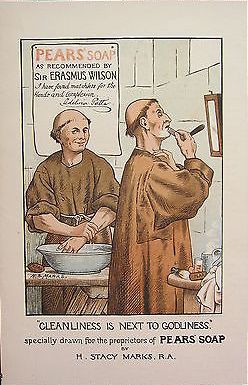 THE STORY OF THE TWO MONKS
THE STORY OF THE TWO MONKS"Many people wonder, Mr. Barratt, how you induced so well know an artist as Mr. Marks to draw you those famous monks of his. It was really a stroke of genius. Mr. Barratt smiled placidly, and admitted the soft impeachment " Ah” he said, in a contemplative tone, "that was a triumph. But it was very difficult to persuade Mr. Marks, I can assure you. But I argued the point with him in this wise; A good picture is the best educator in the world. Better than masters, better than lectures, better thin preaching. Who can distribute good pictures so well as a large advertiser? He places them on every boarding, at every street corner, in every magazine and periodical, in newspapers, in railway trains, in cabs, in omnibuses-everywhere, in fact, where men do congregate. Given a good picture done by a good artist, with a good subject, it is always before the eyes of the masses, who see it wherever they go. Mr. Marks saw the force of my arguments, and agreed to help me ' I can draw monks, he said ' but how will they help you ? I made a suggestion, which he has earned out so admirably. His two monks-one shaving, the other washing-are known well over the world. What better proof of their popularity can there be than the use they have been put to for political cartoons in Punch and elsewhere? I maintain that we, personally, can do more good for the spread of art and culture than our Royal Academy, or our endless galleries. I may tell you that I am going to ask Mr. Alam Tadema to help us, and hope to be successful.
SUN RAYS AS ADVERTISEMENTS
"One of our best advertisements, to my mind, is that little fact in optics which we offer you a reward to disprove. How simple, and yet how effective. ' By that little spot of white in that belt of orange or green or yellow, in how many eyes have those magic letters-Pears’s Soap-been reflected. Well, I was sitting in my chair one day and happened to notice the line made by the sunlight streaming into the room through a small circle in the blind. I looked intently for a few seconds, and saw revealed the complimentary colours. But it was only after months of experimenting that we brought the advertisement to its present perfection.
HOW IT’S DONE – A DINNER AND A BOX OF SOAP
"One day, as I lay a-thinking, it struck me that Mdme. Patti’s great popularity might be turned to account. I sent the prima donna an exquisite box of soap. I happened to know one of Mdme. Patti’s medical advisers, who mentioned the matter to her after dinner-that is the proper time to ask a favour-and to say how grateful we should be for an acknowledgment of the little gift. After some delay, my hopes were gratified by the scrap of writing which you have seen so often. It was the same with Mrs Langtry, and Miss Anderson helped us too. We have never paid a single penny** for such advertisements. Advertising is, indeed, high art. Now, look it Mr. Ward Beecher’s letter here. He once said a good word for us. If cleanliness is next to godliness, he said, ' soap must be considered as a means of grace, and a clergy man who recommends moral things should be willing to recommend soap. A sensible man, what say you ?
PHOTOGRAPHS AND STATUES AS ADVERTISEMENTS
"Of the photographs of Mdme. Patti and Mrs. Langtry the Stereoscopic Company printed 200,000 copies. These we pasted on to small and neat mounts, the whole making a picture that was well worth keeping. They were circulated lately in America and here. Then again, of the 'Dirty Boy,' we have had innumerable photographs and prints taken. Many of the larger photographs we have framed, and presented them to our clients. Then, again, thousands of casts of that famous pair have been made in clay, bronze, and terracotta. These we lend or sell outright, as the case may be. The more highly finished examples, worked in Puts, fetch as much as twelve guineas from private purchasers. Now, your notorious white elephant gave us a capital idea, which we utilised extensively in all sorts of ways. Everyone looks at the sketches, laughs at them, and says, 'that’s smart’, or 'How funny’.
PARIS AND HELEN
So early as 1842 the firm issued a most artistic advertisement to illustrate the beauties of cleanliness. It was one of Sir Theodore Martin’s "Bon Gaultier’’ Ballads, partly from the original and partly a parody illustrated Pans and Helen are sitting together, looking very much like Mr Wilson Barrett and Miss Eastlike in 'Claudian’, just before the "cuss’’. Paris is toying with Helen’s hair and admiring her snowy arras, &c He addresses her -
Tell me whence thy beauty, fairest.
Whence thy cheeks enchanting bloom?
Whence the rosy hue thou wearest
Breathing round thee rich perfume
There is no need to say what the secret was. Paris is found it in a casket when his love had fallen to sleep
Eagerly the lid uncloses
Sees within it laid aslope
Fragrant of the sweetest roses
Cakes of Pears’ Transparent Soap !
THE FIRST SHILLING DOES THE TRICK.
"The first time a purchaser invests a shilling or a half crown in a piece of our soap he is a loss to us. We have spent more in trying to get him to come to us than the actual profit on that particular transaction brings to our coffers. But-when he comes he stops, at least, that is our experience, and that is the secret of our success. Once let us catch our man, and the great battle is over. He takes his soap home He says, perhaps, 'Well, I have bought a piece of this much advertised article I wonder whether it is as good as they say it is ' One morning the idea suddenly fixes itself in his mind that it has all these good qualities and he never gives the matter another thought. His wife, perhaps, takes up the wrapper and reads what Mary Anderson or Mrs. Langtry or Patti says about it, or looks at the pictures on the leaflet.”
A DAY’S CORRESPONDENCE
"Every day brings us a huge mass of correspondence from all parts of the world. To facilitate the sorting of the letters we send out to our clients coloured envelopes, stamped. The red one you see here is intended to act as a danger signal to our openers, who regard it as private and containing money. Every day, too, brings, as to the editor of a newspaper, its budget of contributions ' I beg to enclose to you a set of verses, of which I think you will see the beauty and appreciate the sentiment. Could they not be devoted to commercial purposes and be used for advertising purposes ?’ Or, ' I submit to you a design which a friend thinks most admirable for your purpose. The idea is full of humour Could it not be utilised by you? Humour is my strong point, and I have contributed to the comic papers for some time past, though, owing to some disgraceful deity on the part of the post office officials, they appear to have miscarried. For miscarriage is, I am sure, the only reason for their nonappearance. With this I bowed myself out, much entertained.
**Launched by Pears in 1882, the Lillie Langtry endorsement is stated by numerous sources, to have cost the firm £132, reflecting her weight at that time, not the 'at no cost' stated in the above article. The endorsement was then used for two decades, incorporating her original statement, and in various ‘artworks’ in magazines, newspapers and trade card advertisements.
Lillie Langtry, born Emilie Charlotte Le Breton (October 13, 1853 – February 12, 1929), was celebrated as a young woman of beauty and charm, who later established a reputation as an actress and producer. Her looks and personality attracted interest, commentary, and invitations from artists and society hostesses.
By 1881, she had become an actress and starred in many plays, including She Stoops to Conquer, The Lady of Lyons, and As You Like It, eventually running her own stage production company. In later life she performed "dramatic sketches" in vaudeville. She was also known for her relationships with noblemen, including the Prince of Wales, the Earl of Shrewsbury, and Prince Louis of Battenberg. She was the subject of widespread public and media interest.
An Australian example which seems to incorporate some of that 'waiting-room' that became famous at Pears':
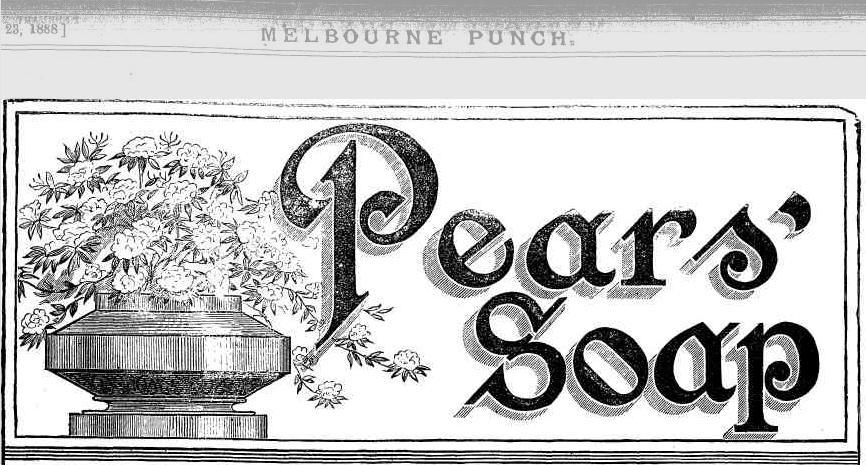
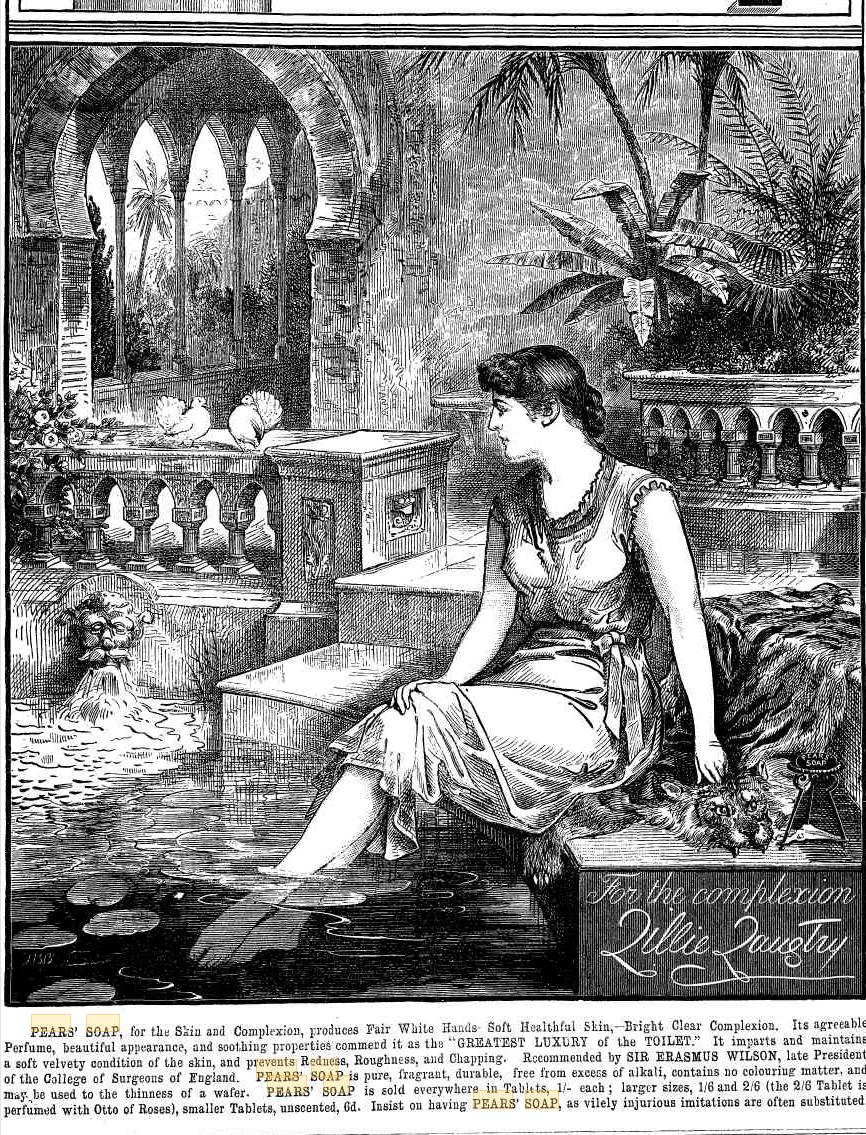
PEARS' SOAP, for the Skin and Complexion, produces Fair White Hands- Soft Healthful Skin-Bright Clear Complexion. Its agreeable Perfume, beautiful appearance, and soothing propertied commend it as the "GREATEST LUXURY of the TOILET." It imparts and maintains a soft velvety condition of the skin, and prevents Redness, Roughness, and Chapping. Recommended by SIR ERASMUS WILSON, late President of the College of Surgeons of England. PEARS' SOAP is pure, fragrant, durable, free from excess of alkali, contains no colouring-matter, and may. be used to the thinness of a wafer. PEARS' SOAP is sold everywhere in Tablets, 1/- each; larger sizes, 1/6and 2/6 (tie 2/6 Tablet is perfumed with Otto of Roses), smaller Tablets, unscented, 6d. Insist on having PEARS' SOAP, as vilely injurious imitations are often substituted. Pear's Soap (
1888, February 23).
Melbourne Punch (Vic. : 1855 - 1900), p. 15. Retrieved from
http://nla.gov.au/nla.news-article174573691
Pears Lillie Langtry 1887
PARIS, the Australian racehorse now in England, is being used as a track pacer, his weight in handicaps being fixed too high. Two other Australian racehorses, Merman and Maluma, have been purchased by Mrs. Langtry (the "Jersey Lily"). Notes and Comments. (
1897, January 19).
The Western Champion and General Advertiser for the Central-Western Districts (Barcaldine, Qld. : 1892 - 1922), p. 3. Retrieved from
http://nla.gov.au/nla.news-article76379628
Original vintage magazine print ad for Pears Soap featuring stage actress Mary Anderson. Publication Year: 1885
Among the artworks the most famous is 'Bubbles' by Sir John Everett Millais, given away with the 1897 annual. Originally titled A Child's World, the work became famous when it was used over many generations in advertisements for Pears soap. During Millais's lifetime it led to widespread debate about the relationship between art and advertising. The painting was modelled by his five-year-old grandson William Milbourne James and was based on 17th-century Dutch precursors in the tradition of vanitas imagery, which commented upon the transience of life.
The painting portrays a young golden-haired boy looking up at a bubble, symbolising the beauty and fragility of life. On one side of him is a young plant growing in a pot, emblematic of life, and on the other is a fallen broken pot, emblematic of death. He is spot-lit against a gloomy background.
The painting was first exhibited in 1886 under the title A Child's World at the Grosvenor Gallery in London.
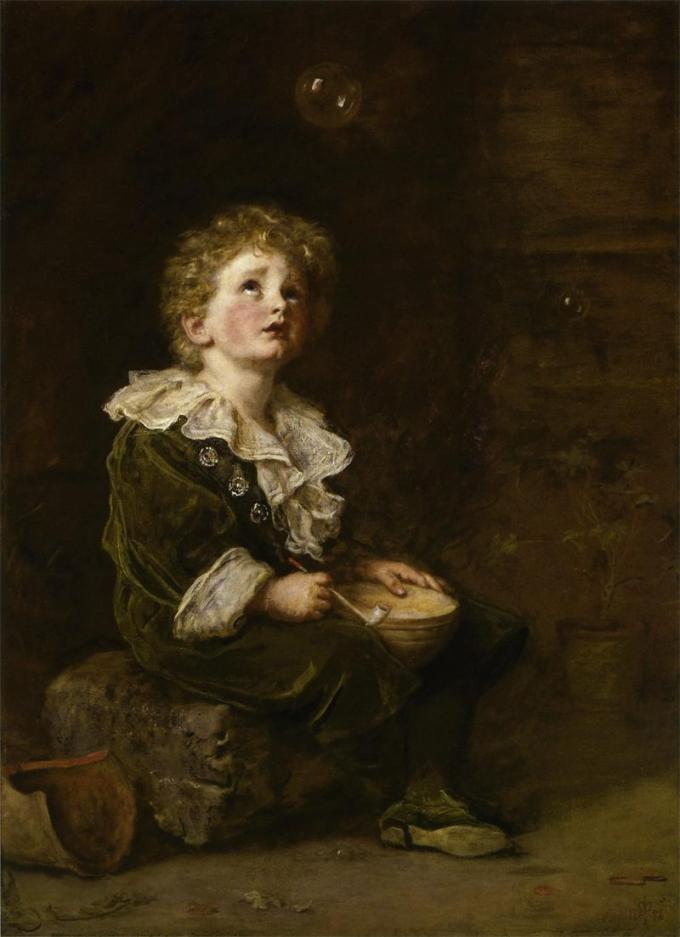
The painting was acquired by Sir William Ingram of The Illustrated London News, who wished to reproduce it in his newspaper. When it was reproduced and presented in the weekly newspaper as a colour plate, it was seen by Thomas J. Barratt, then managing director of A & F Pears. Barratt purchased the original painting from Ingram for £2,200 which gave him exclusive copyright on the picture. Millais' permission was sought in order to alter the picture by the addition of a bar of Pears Soap, so that it could be used for the purposes of advertising. At the time Millais was one of the most popular artists in Britain and he was initially apprehensive at the prospect of his work and his grandson being the subject of commercial exploitation. However, when he was shown the proofs of the proposed advertisements he grew to appreciate the idea, which portrayed the soap as if the child had used it to make the bubbles.
The advertisement became so well known that William Milbourne James, who later rose to the rank of Admiral in the Royal Navy, was known as "Bubbles" for the rest of his life.
Many Pears prints were turned into jigsaws between 1900 and 1920 by the people who had bought them and these can still be found occasionally.
Those that re fetching the highest prices are the increasingly rare outdoor metal signs and shop cards for the brand. (Beware, there are many imitations and reproductions of these and advertising mirrors.) Less expensive and more common are postcards of 'Bubbles' from the early 1900s.
Tying in advertisements to current events was developed here too:
The special commission : Pear's soap used by all the best judges. circa between 1880 and 1889.
This file comes from Wellcome Images. Photo number: L0046160. Full Bibliographic Record: http://catalogue.wellcomelibrary.org/record=b1662285
Pears' Soap, "used by all the best judges".
Three judges, in full robes and wigs, stand in court examining a bar of Pears' Soap. In the background is a list of witnesses, including Sir Erasmus Wilson, president of the Royal College of Surgeons and author of "Healthy Skin: A popular Treatise on the Skin and Hair, their Preservation and Management."
Barratt's methods led to much comment and parody, most famously a Harry Furniss Punch cartoon in which a tramp says "I used your soap two years ago, and have not used any other since", a parody of Lillie Langtry's testimonial advertisement for the soap. Barratt bought the rights to the cartoon and used it in Pears' own marketing.
Furness's parody of Barrett's advertising
GREAT HUMOURIST PASSED
Harry Furniss Dead.
A Remarkable Career.
LONDON, January 15.
The death occurred to-day of the famed caricature artist, author, and lecturer, Mr; Harry Furniss. He was born at Wexford, Ireland, in 1854, and was therefore in his seventy-first year.
His father was an engineer, his mother the daughter of the veil-known Newcastleon-Tyne author, publisher, and politician, Eneas MacKenzie, the founder of the Joseph Cowen political school of that place. He was educated in Dublin, and began drawing for periodicals and magazines at a very early age. Wherever British illustrated newspapers circulated, the name of Furniss and his wonderful work in black-and-white were known. He was, without doubt, the leading caricaturist of his time. Not only that—lie was a prolific .writer, an indefatigable lecturer, and an extensive traveller. He settled in London at the age of 19 years.
THE LATE MR. HARRY FURNISS.
The metropolis, and then England, soon became aware of the presence of a new genius. For many years he contributed to The Illustrated London News, The Graphic, Black-and-White, Illustrated Sporting and Dramatic News, and the principal magazines in Great Britain and the United States.
Connection with Punch.
Next he joined up with Punch. His first drawing in Punch appeared in 1880, and he was on the regular staff four years after. At that time his Punch Parliamentary Views were collected and published in an edition de luxe. His principal works in Punch were Parliamentary scenes and sketches of members, with few exceptions drawn direct in the Houses and finished in the studio. Besides his work in Punch, he contributed drawings to Harper's in America, and others, and to numerous papers, The World and Vanity Fair among them. He brought out ban album for children, with coloured pictures, entitled "Romps." In 1890 he was elected one of the original Fellows of the Institute of Journalists. In 1891 Mr. Furnisa produced - his first entertainment, "The Humours of Parliament," which he gave all over the country for two" seasons. This was followed by "America in Hurry," produced after a visit to the United States.- He made a tour of the world (1897-98), visited the United States, Canada, Australia, and other countries. Mr. Harry Furniss severed his connection with Punch in 1891, and afterwards edited a comic three penny weekly, entitled Lika Joko. This was amalgamated with The New Budget, a continuation of Mr. Astor's Pall Mall Budget, but finding it too stereotyped a publication, Mr. Furniss discontinued it 1895, and produced his own periodical, entitled Fair Game. The fees paid for his caricatures by several London editors touch the high-water mark of such transactions.
"Great Parliamentary Draftsman."
One affectionate public designation of Mr. Furniss was that of "Great Parliamentary Draftsman," for his marvellously conceived, yet never unkind, caricatures undoubtedly wielded influence inside of Parliament and outside of it. The amount of work he was able to perform was amazing. Drawing for the multitude of journals which clamoured for his conceptions, lecturing here,' there, and everywhere, writing books (sometimes of a serious nature), he yet found leisure to exploit the commercial field.
For instance, about 1880 Lily Langtry wrote to Pears's Soap a testimonial which was published (with floral embellishments), as follows:—"Two years ago I used your soap. Since when I have used no other." This made an excellent advertisement for the firm for years. Then in an issue of Punch a Furniss. brainwave produced the sketch of a dirty tramp labouriously writing a testimonial in the same words. The firm concerned immediately grasped the subtle humour of the situation, and advertised the skit even more widely, so that it became world-famed. He also wrote moving picture, plays, and acted in them.'
Visit to Australia.
In May, 1897, the late caricaturist came to Australia, on a lecturing-tour under the management of. the late Mr.R. S. Smythe. Of the trip and its results he said:~-,'As soon as I arrived I went about in search of the A. type of the Australian girl for my pictures; and was sketching one from my hotel window as typical of the real Australian, when the captain of the* ship I had travelled by came in, and said, 'Oh, there's that Cockney, Hiss So and So.* She had come over. in the same boat, second class, and had never been in Australia before."
Very Earliest Days.
To hark back a bit. reference may be made to Mr. Furniss's very youthful efforts. He told one of his innumerable interviewers:—"The first cartoon I ever drew appeared in The Schoolboy's Punch, of which I was sole proprietor, producer (it was in pen and ink, published monthly), editor, and contributor. By the way, George Bernard Shaw was at the same school; I remember him well. Sir Edward Carson (now Lord Carson) was another boy. My first cartoon was, artfully, a complimentary treatment of the bead master. So well was my juvenile effort received that it ia not too much to say it decided my future career. From that day forward I clung to the pencil, and in a few years was regularly contributing cartoons to public .journals and practising the profession I have ever since followed. Drawing, in fact, seemed to come naturally and intuitively to me. I did not altogether escape the thraldom of the drawing master, and as years went on I made a really serious effort to study at an art school under the Kensington system, which I believe to be positively prejudicial to a young artist possessing imagination and originality. A short time of the dreariness of art education under the Kensington system sufficed to disgust me with the art school, and I preferred to stay at home caricaturing my relatives and practising alone the rudiments of my art."
Genius and Opportunities.
Naturally, the artist met every type of man and woman—from prince to pauper. His store of knowledge and anecdotes and experiences was about as varied as the cargo of an ocean liner. He knew how to illustrate them, write about them, or talk about them. Perhaps Furniss was to the English-speaking world what Mark Twain was to America. The rare gift of humour makes us akin. He has left the world richer for the exercise of his rare gifts. GREAT HUMOURIST PASSED (
1925, January 24).
Observer (Adelaide, SA : 1905 - 1931), p. 45. Retrieved from
http://nla.gov.au/nla.news-article166315944 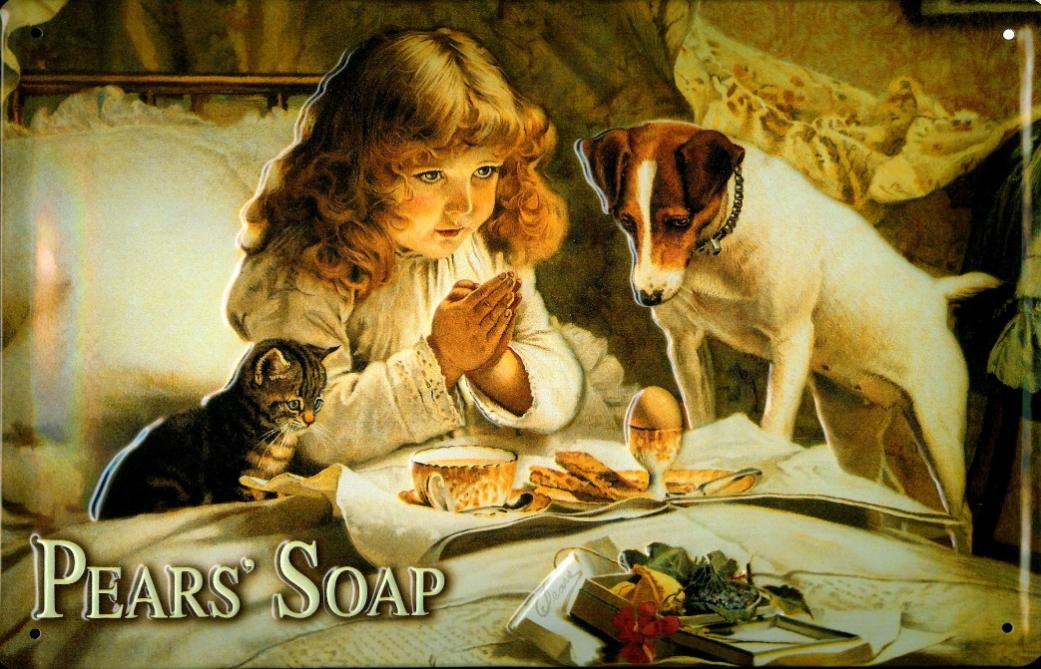
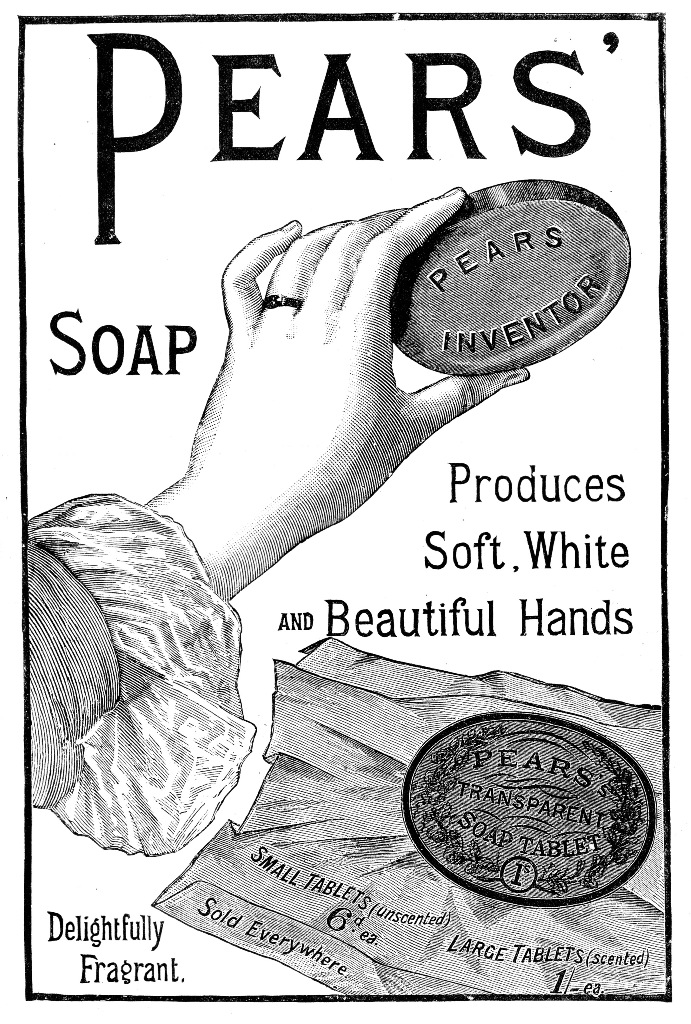




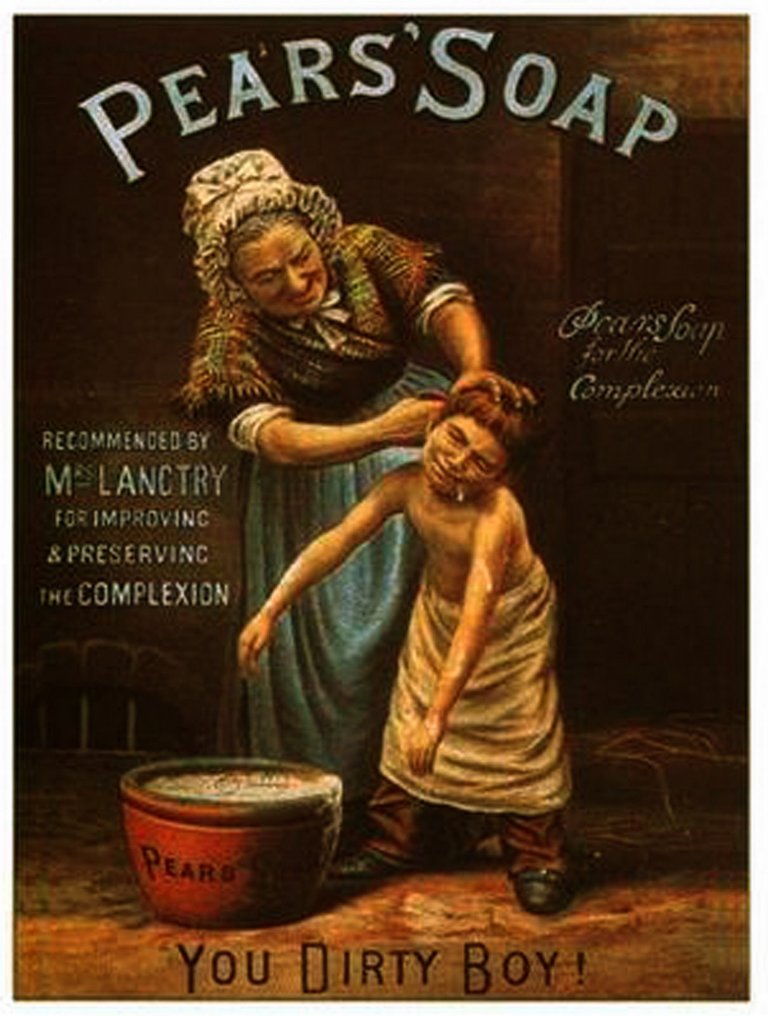
 Melbourne Centennial Exhibition.
Melbourne Centennial Exhibition.
 THE GREAT ADVERTISERS OF THE WORLD.
THE GREAT ADVERTISERS OF THE WORLD. SOAPS AND SKINS.
SOAPS AND SKINS. THE FORTY VIRTUOUS MATRONS OF
THE FORTY VIRTUOUS MATRONS OF THE STORY OF THE TWO MONKS
THE STORY OF THE TWO MONKS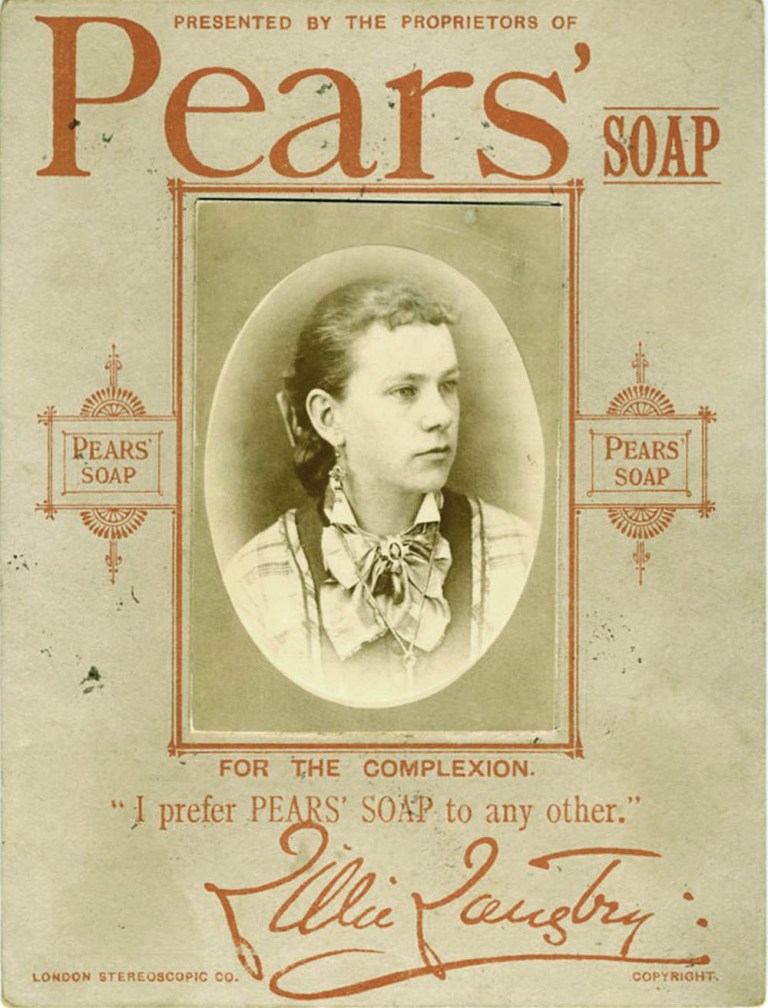


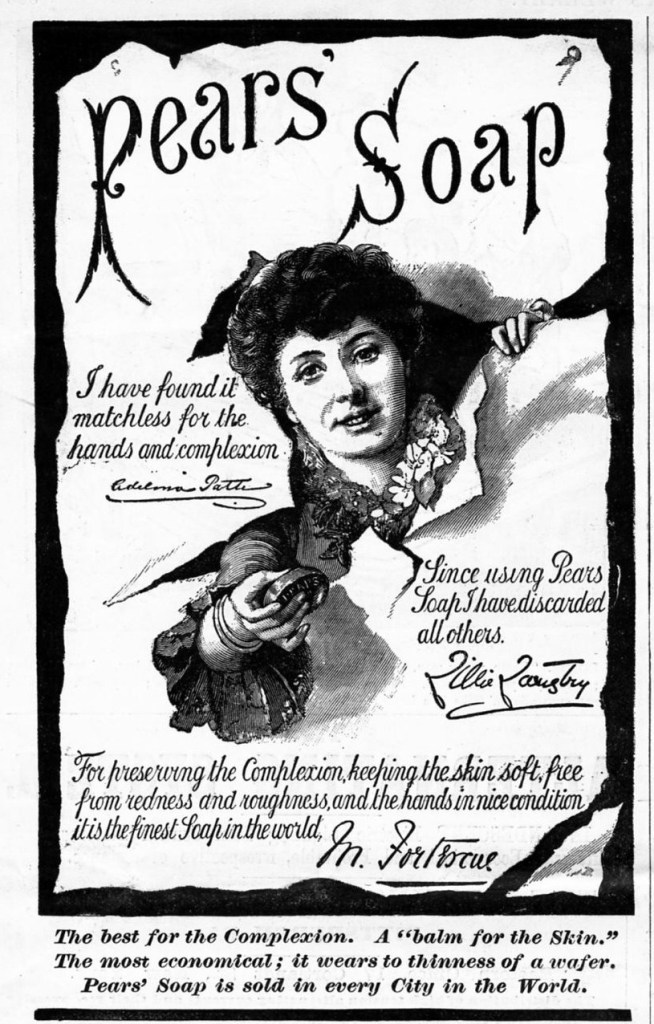
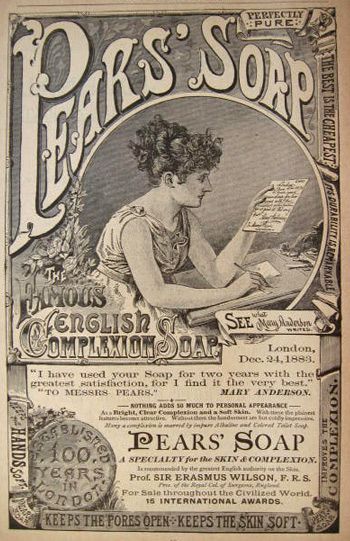

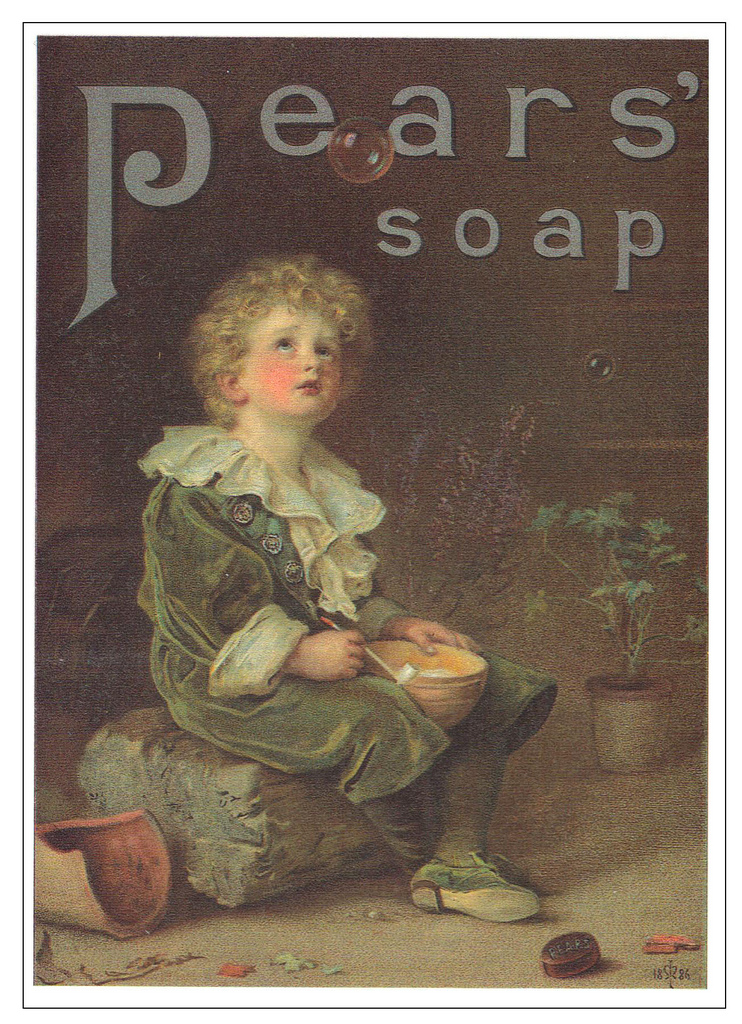
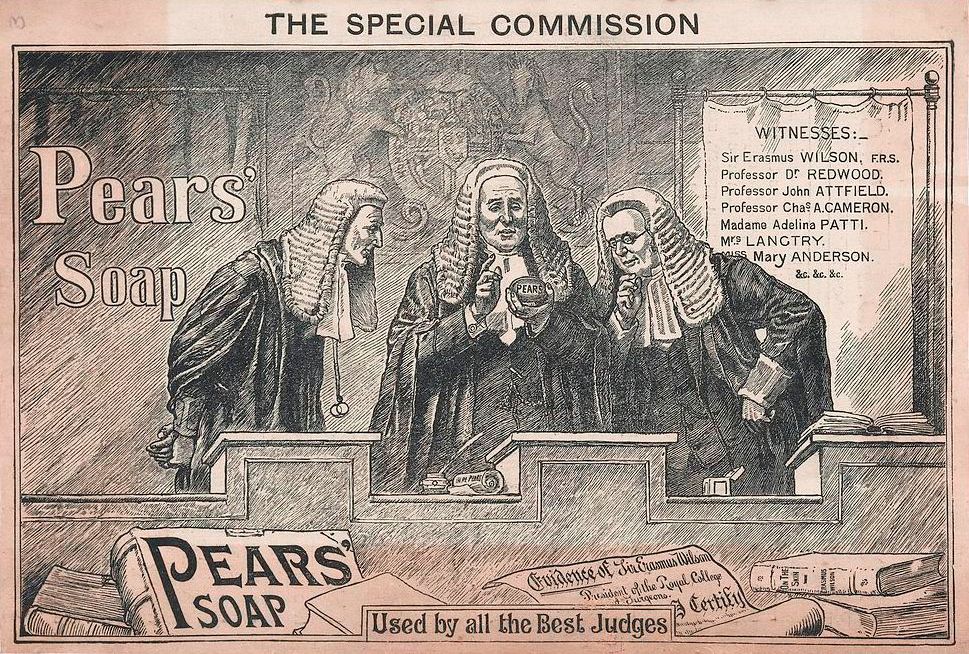
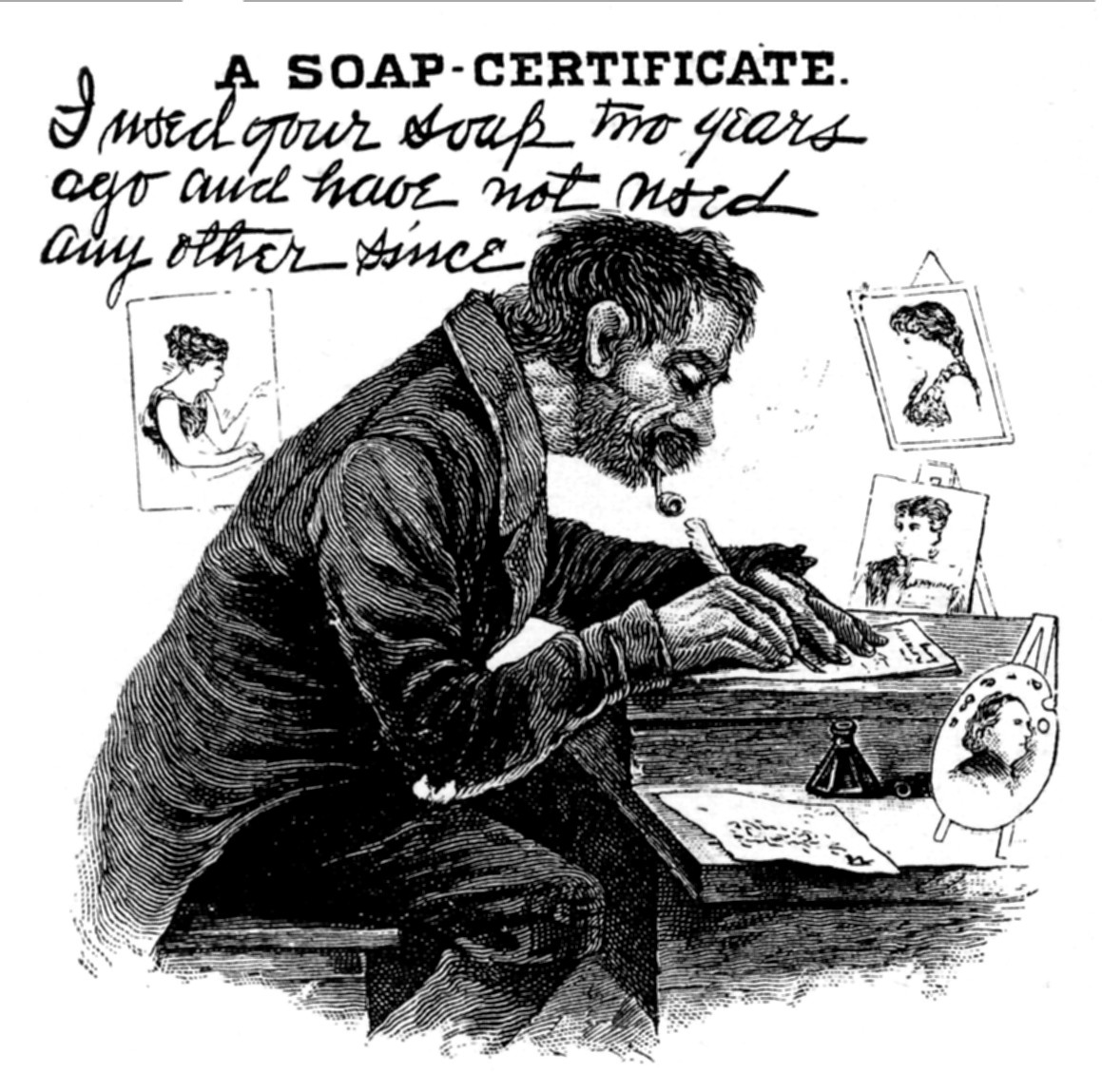
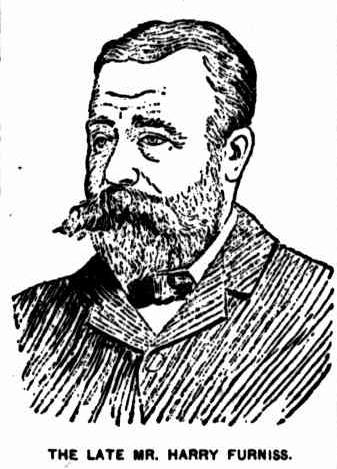
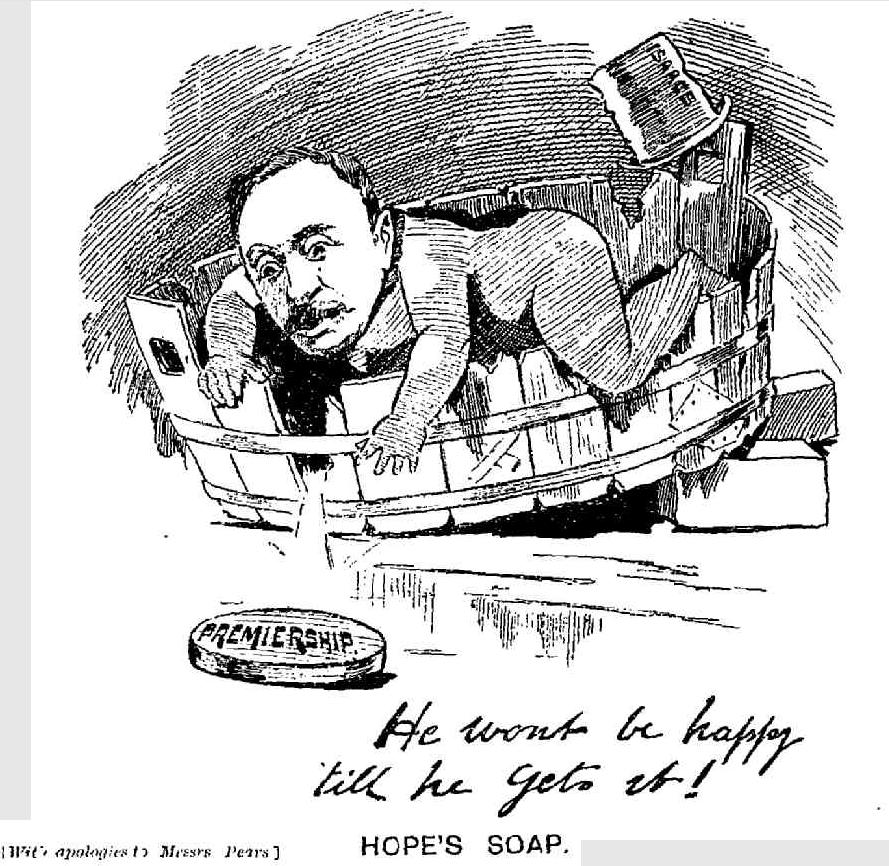
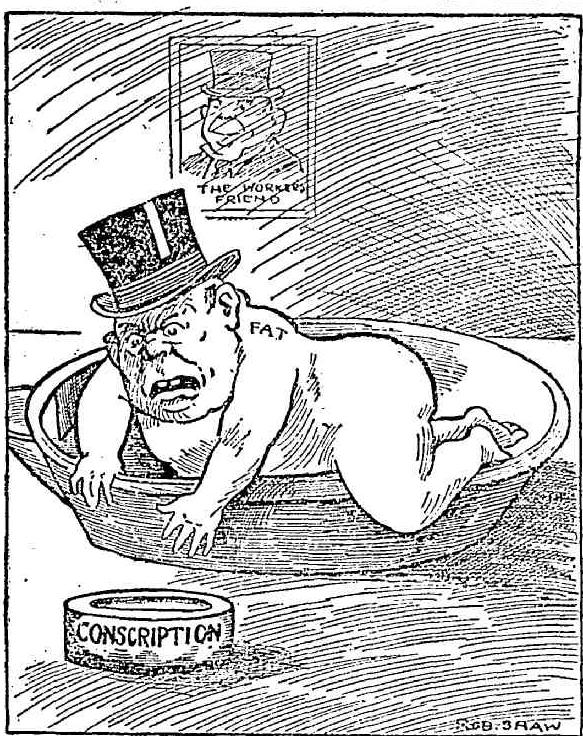
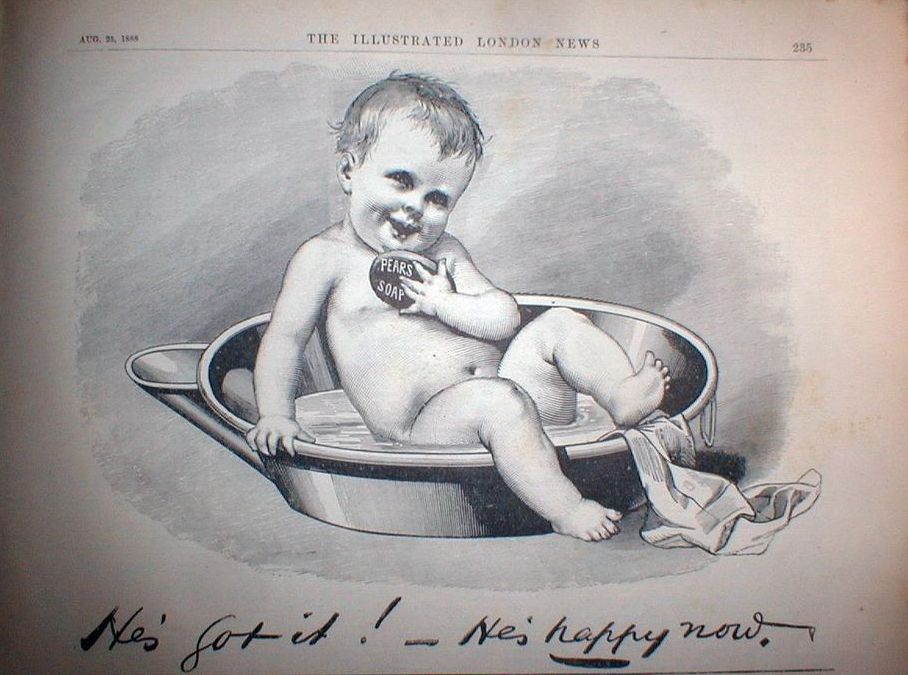
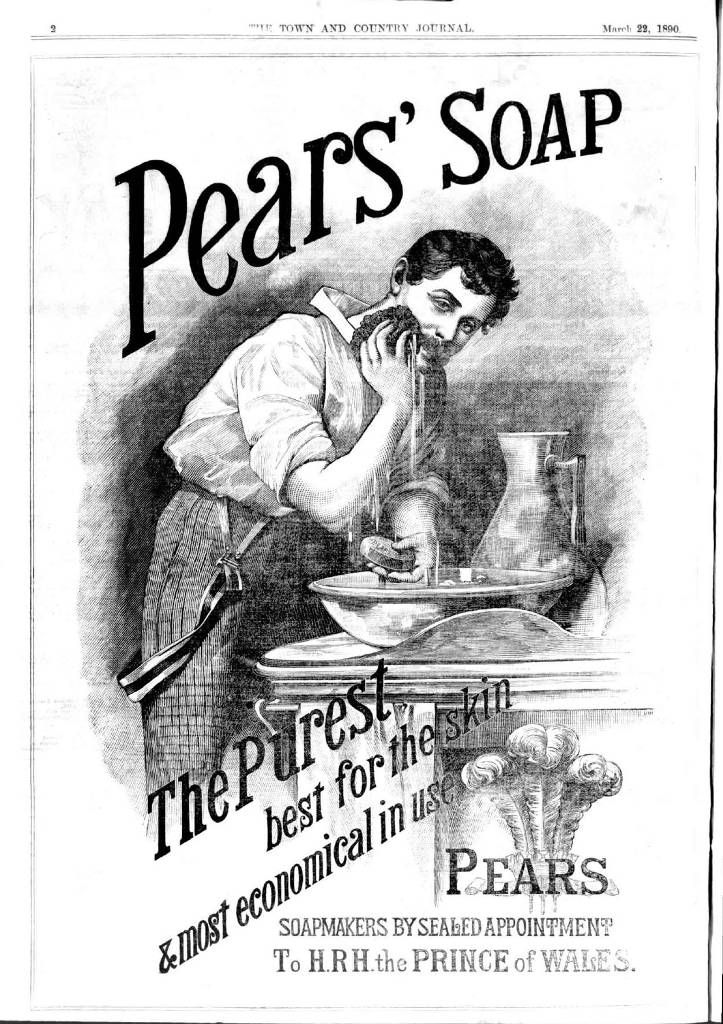
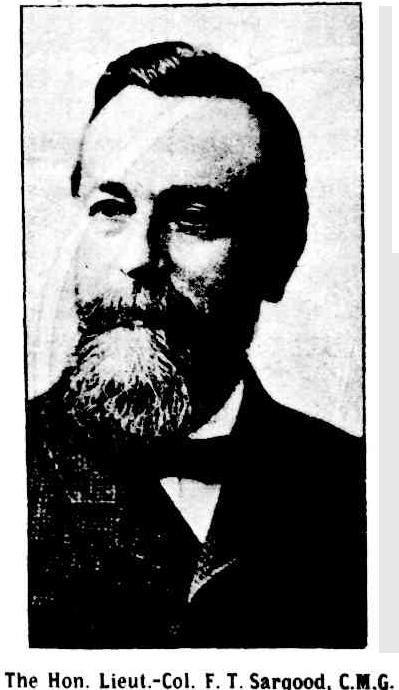
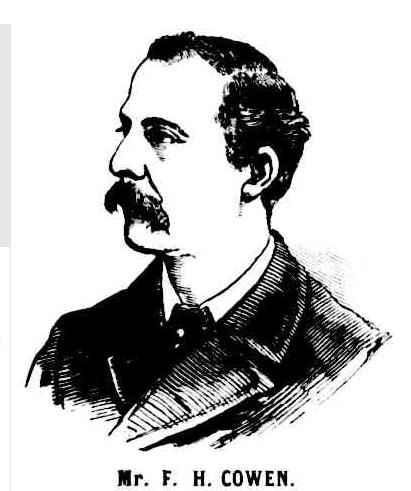
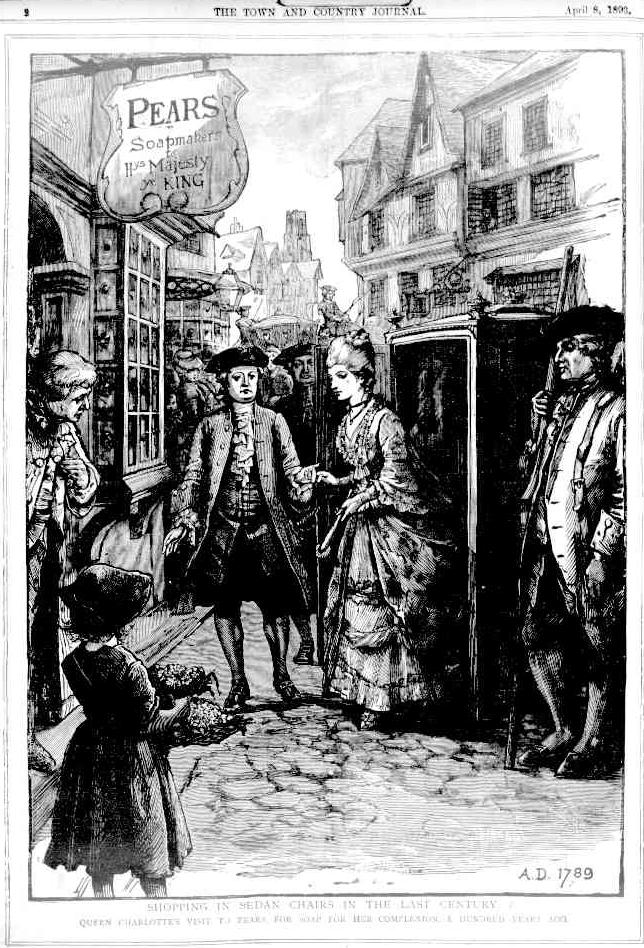
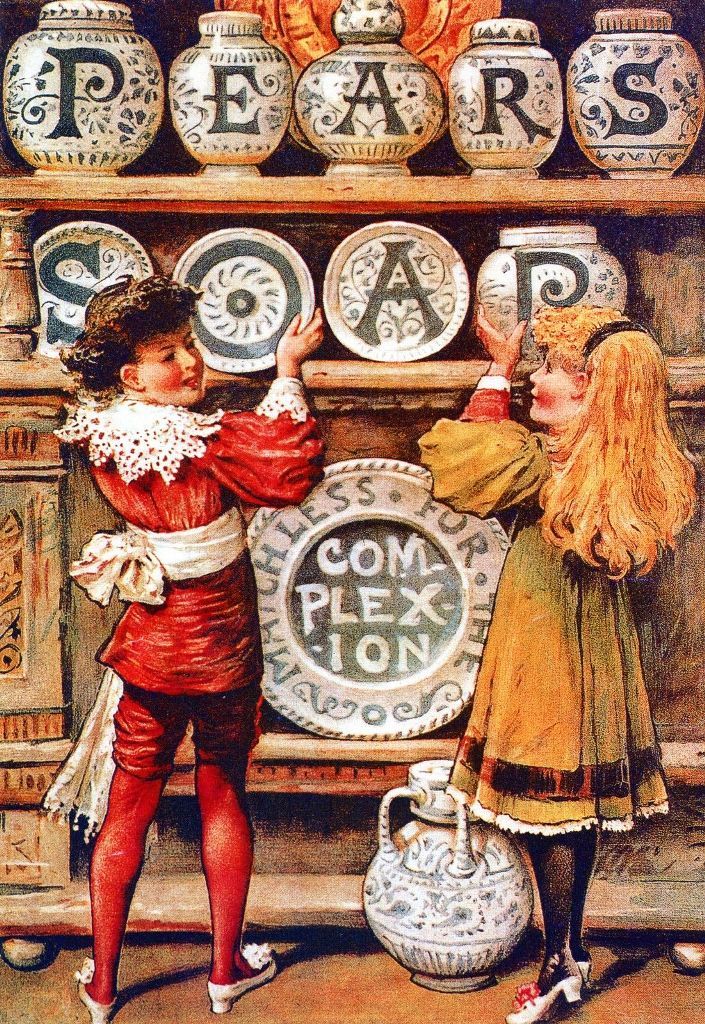 PEARS' SOAP;
PEARS' SOAP;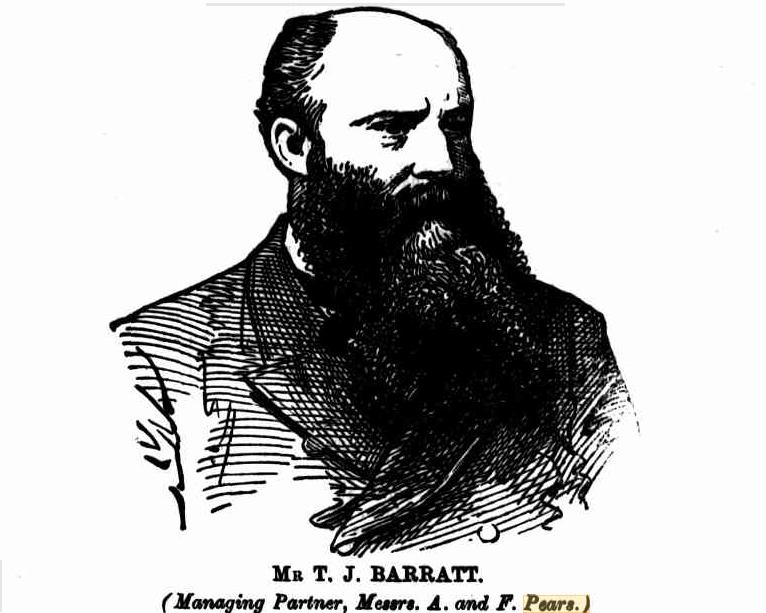
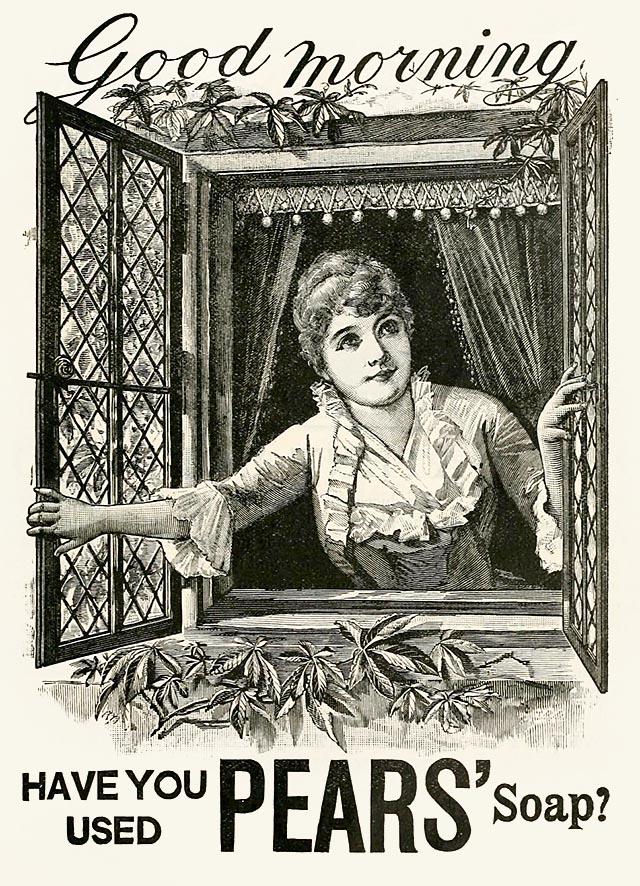 ROMANCE OF TRADE,
ROMANCE OF TRADE,